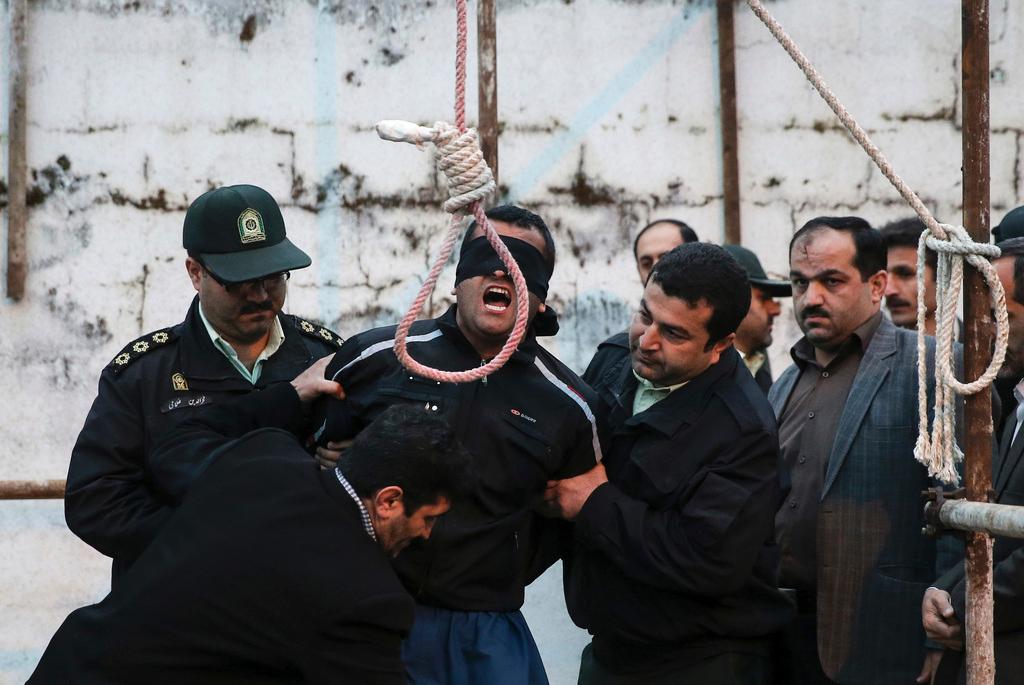Swiss launch joint declaration against death penalty

On World Day against the Death Penalty, Swiss President Didier Burkhalter has launched a joint declaration in favour of death penalty abolition, together with 11 foreign ministers from around the world.
“The death penalty is incompatible both with human rights – in particular the fundamental right to life – and with justice systems aimed at rehabilitation rather than retribution.” according to a government statement on Friday.
Switzerland is working on this issue at both the international level – namely in the framework of the UN General Assembly, the United Nations Human Rights Council, the Organization for Security and Co-operation in Europe (OSCE) and the Council of Europe – and at the bilateral level, engaging in dialogue with countries that are on the path towards abolition.
“The death penalty is irreversible and can lead to wrongful convictions, or even executions. Even in modern and transparent justice systems, human error remains an unavoidable risk,” the statement said.
“Furthermore, the death penalty reinforces discrimination: investigations show that underprivileged, vulnerable or marginalised people are, in many places, disproportionately affected by the death penalty. Moreover, attempts at using the death penalty to fight crime, drug dealing or terrorism are, in Switzerland’s view, ineffective.”
Switzerland has set itself an ambitious goal with the strategy it formulated last year: it wants to promote the worldwide abolition of the death penalty, or at least a moratorium on all executions, by 2025.
Progress of sorts
Statistics show that the global trend is moving in this direction: 40 years ago, only 14 countries had abolished the death penalty. Today this practice has been officially abandoned in 100 countries. Counting those countries that have not carried out any executions in the past decade, the number rises to about 160.
The death penalty was abolished from Swiss federal criminal law in 1942 but remained available in military criminal law until 1992.
However, there is still work to be done in order to reach the ultimate goal of universal abolition.
At least 778 people were executed worldwide in 2013 according to an Amnesty International reportExternal link, an increase of almost 15% compared to 2012. This figure does not include the thousands of people put to death in China, which keeps this data a state secret. Almost 80% of all known executions were recorded in just three countries: Iran, Iraq and Saudi Arabia.
In its statement, the Swiss government concluded that there is “no justification for retaining the death penalty; there are only considerable risks and disadvantages. This year’s declarationExternal link invites everyone to become aware of the death penalty’s many failures and to contribute to worldwide abolition”.

In compliance with the JTI standards
More: SWI swissinfo.ch certified by the Journalism Trust Initiative



You can find an overview of ongoing debates with our journalists here. Please join us!
If you want to start a conversation about a topic raised in this article or want to report factual errors, email us at english@swissinfo.ch.